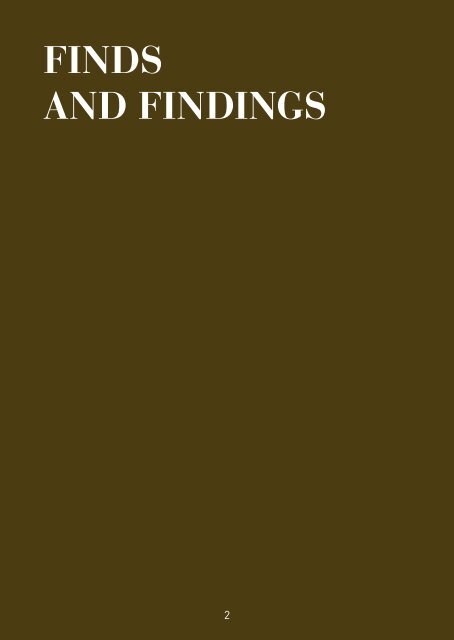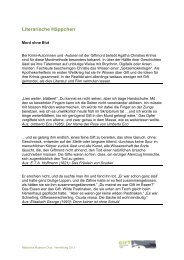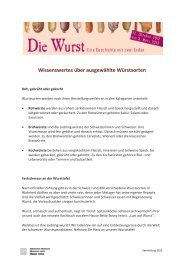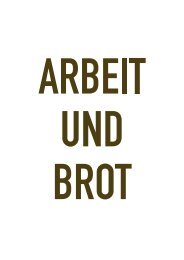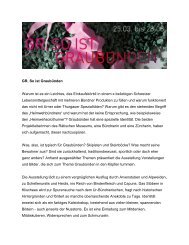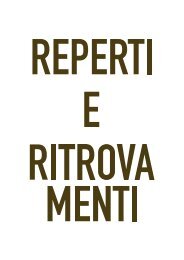Finds and Findings - Raetisches Museum - Kanton Graubünden
Finds and Findings - Raetisches Museum - Kanton Graubünden
Finds and Findings - Raetisches Museum - Kanton Graubünden
You also want an ePaper? Increase the reach of your titles
YUMPU automatically turns print PDFs into web optimized ePapers that Google loves.
<strong>Finds</strong><br />
<strong>and</strong> <strong>Findings</strong><br />
2<br />
The term archaeology derives from the Greek<br />
words «archaios» (old) <strong>and</strong> «logos» (teaching).<br />
Which means as much as «lore of antiquity» or<br />
«scientific study of antiquity», always in relation<br />
to the history of man <strong>and</strong> his environment.<br />
Originally archaeology was concerned with nonliterate<br />
or low-grade literate epochs, i.e. with<br />
prehistory <strong>and</strong> early history (Roman epoch). This<br />
insofar as they can be uncovered by excavation,<br />
meaning the decoding of archaeological findings.<br />
This can include entire settlements, also foundation-walls<br />
of houses, burial grounds <strong>and</strong> pits.<br />
Other remains of human activity are for example<br />
ritual sites, hoard finds <strong>and</strong> slag disposal sites,<br />
also finds such as stone tools, metal objects,<br />
pottery, bone artefacts or remains of bones.<br />
Task <strong>and</strong> aim of archaeology is to excavate, document,<br />
<strong>and</strong> to interpret these findings <strong>and</strong> finds as<br />
precisely as possible. They lead to insights into<br />
the history of man <strong>and</strong> his natural environment,<br />
that is to historical conclusions.<br />
At a later time archaeological methods were also<br />
used for the historical epochs. This includes<br />
archaeology of the Middle Ages, castle research,<br />
3


